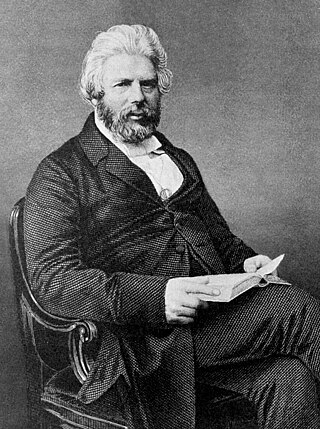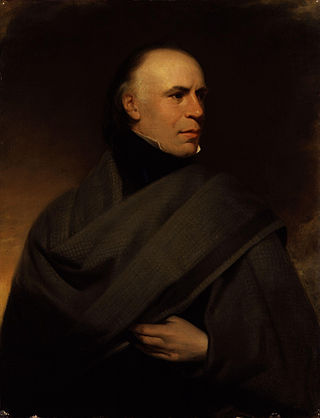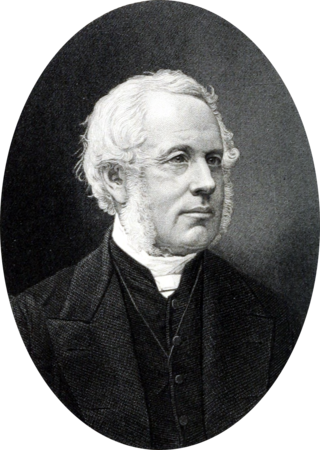Related Research Articles

Robert Chambers was a Scottish publisher, geologist, evolutionary thinker, author and journal editor who, like his elder brother and business partner William Chambers, was highly influential in mid-19th-century scientific and political circles.

William Blackwood was a Scottish publisher who founded the firm of William Blackwood and Sons.

Allan Cunningham was a Scottish poet and author.
This article contains information about the literary events and publications of 1787.

Sir Robert Aytoun or Ayton (1570–1638) was a Scottish poet.

Patrick Fraser Tytler FRSE FSA (Scot) was a Scottish advocate and historian. He was described as the "Episcopalian historian of a Presbyterian country".

Robert Wodrow was a Scottish minister and historian, known as a chronicler and defender of the Covenanters. Robert Wodrow was born at Glasgow, where his father, James Wodrow, was a professor of divinity. Robert was educated at the university and was librarian from 1697 to 1701. From 1703 till his death, he was parish minister at Eastwood, near Glasgow. He had sixteen children, his son Patrick being the "auld Wodrow" of Burns's poem Twa Herds.
James Maidment was a British antiquary and collector. He passed through Edinburgh University to the Scottish bar, and was chief authority on genealogical cases.

David Welsh FRSE was a Scottish divine and academic. He was Moderator of the General Assembly of the Church of Scotland in 1842. In the Disruption of 1843 he was one of the leading figures in the establishment of the Free Church of Scotland.

Alexander Colquhoun-Stirling-Murray-Dunlop was a Scottish church advocate and Liberal Party politician. He was the Member of Parliament (MP) for Greenock from 1852 to 1868. He was a very influential figure in the Disruption of 1843 which led to the formation of the Free Church of Scotland. For that denomination he drafted the Church-State papers: the Claim of Right and the Protest. He became known by the nickname the Member for Scotland.
Dainty Davie is a folk song, possibly of Scottish origin, which is still part of the repertoire of Scottish and Irish traditional music. It has a long history and two different tunes, both of which have been used for several texts, the best known of which are by Robert Burns.

James Pillans FRSE (1778–1864) was a Scottish classical scholar and educational reformer. He is credited with inventing the blackboard, but more correctly was the inventor of coloured chalk.

Charles Kirkpatrick Sharpe (1781?–1851) was a Scottish antiquary and artist.
Alexander Laing (1787–1857) was a Scottish verse writer, known as the Brechin poet.

Thomas Murray was a Scottish printer and writer. His most noted work is The Literary History of Galloway.
Andrew Mercer (1775–1842) was a Scottish poet and topographer.

"Ca' the yowes to the knowes" is a Scottish folk song collected by Robert Burns from 1794. Although sometimes attributed to Burns himself, the seven-stanza original poem is thought to be the work of Ayrshire poet Isabel Pagan, a contemporary of Burns. The poem was partially revised by Burns, and he added an eighth stanza. Burns later re-wrote the poem on a solitary stroll in the country, and this second version consists of six stanzas. It is possible that Burns was not aware that Pagan was the original author, only noting that "this song is in the true Scottish taste, yet I do not know that either air or words were ever in print before."

Robert Buchanan (1802–1875) was a Scottish Presbyterian minister and historian who served as Moderator of the General Assembly to the Free Church of Scotland in 1860/61. He was one of the leading figures in the Disruption of 1843.
George Godfrey Cunningham was a Scottish writer, compiler, and translator.
The Rowan Tree is a traditional Scottish folk song by Carolina Nairne. An early publication occurred in 1843.
References
- 1 2 3 "Scottish Notes and Queries". Internet Archive . 3rd series. November 1906. p. 76. Retrieved 25 August 2015.
- ↑ Finlayson, James (1897). "An Account of the Life and Works of Dr. Robert Watt". London: Smith, Elder & Co. p. 40. Retrieved 25 August 2015.
- ↑ Samuel Austin Allibone (1871). A critical dictionary of English literature, and British and American authors living and deceased. p. 2696.
- ↑ Daniele Besomi (1 March 2013). Crises and Cycles in Economic Dictionaries and Encyclopaedias. Routledge. p. 14. ISBN 978-1-136-72290-5.
- ↑ Alexander Whitelaw (1828). The Casquet of Literary Gems. Blackie, Fullarton & Company.
- ↑ Alexander Whitelaw, ed. (1833). The Republic of Letters.
- ↑ Stephen, Leslie, ed. (1886). . Dictionary of National Biography . Vol. 7. London: Smith, Elder & Co.
- ↑ Alexander Whitelaw, ed. (1844). The Book of Scottish Song, Collected and Illustrated with Historical and Critical Notices.
- ↑ Alexander Whitelaw (1845). The Book of Scottish Ballads; Collected and Illustrated with Historical and Critical Notices.